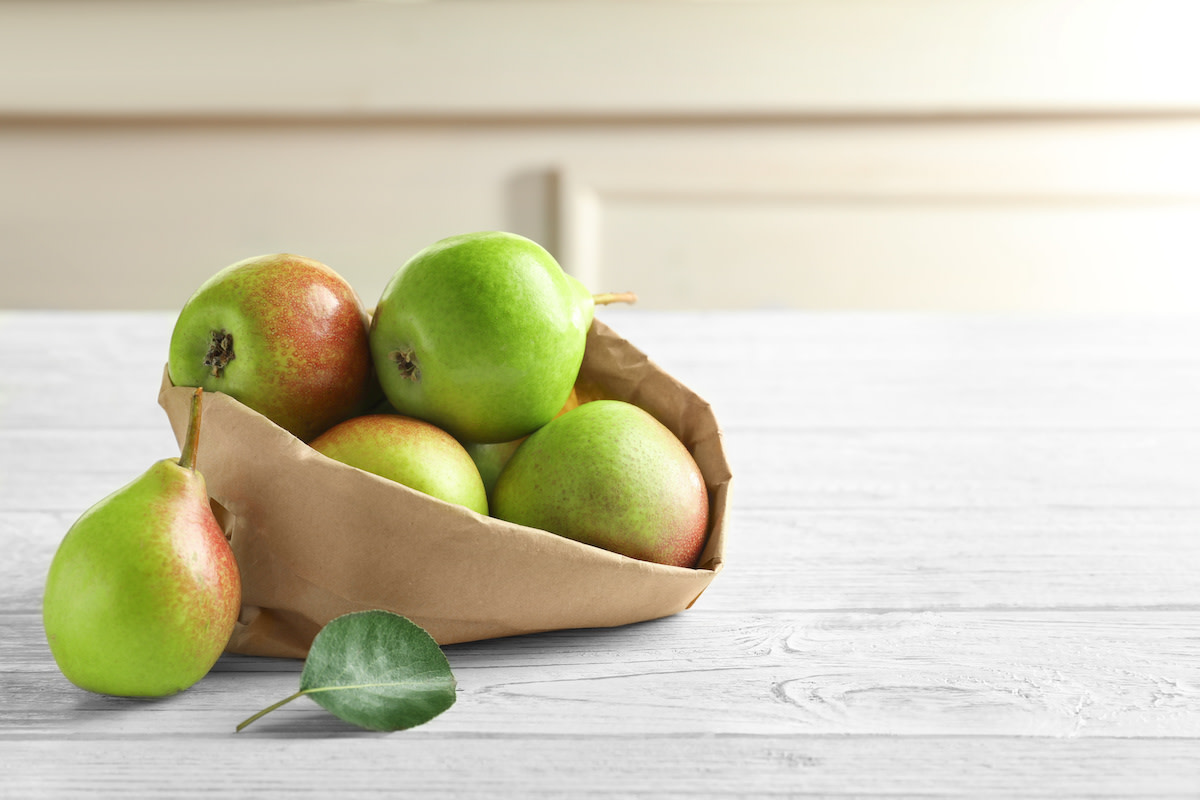Pears ripen from the inside out, so the best way to know if a pear is ripe or not is to apply gentle pressure to the neck (stem end). If your pears aren’t ripe yet, there are a few ways to encourage them to ripen more quickly.
Learn From the Best
What Is a Pear?
A pear is an edible fruit grown from the tree of the same name belonging to the rose family. It’s known for its bell shape—wide on the bottom and tapered up top—thin exterior skin, and soft, juicy flesh. Pears are mostly water, so their biggest nutritional offering is dietary fiber.
How to Choose the Best Pears
When choosing a pear at the grocery store or farmers’ market, keep these tips in mind. They apply to all kinds of pears, including as bartlett pears, anjou pears, bosc pears, comice pears, and asian pears.
- Look for blemishes. Some discoloration is natural, but if a pear has multiple bruises or dark brown spots, it may be damaged or old. Avoid blemished pears unless you plan to cook them that day.
- Avoid pears with torn skin. Torn skin is an invitation for mold and fruit flies. A small tear may be fine if you plan to cook the pear that day, but avoid pears with badly torn skin.
- Test for ripeness. Pears are typically harvested before they are ripe, since they can get mealy if left on the tree for too long. It’s perfectly fine to choose firm pears and allow them to ripen at home, but if you want to eat your pears immediately, gently squeeze the stem end of the pear. If it’s tender, the pear is ripe.
How to Store and Ripen Pears at Home
Here’s how to ripen pears at home for the best flavor.
- Leave pears on the counter. Pears will ripen on their own when left alone for a long enough period of time. You can place them in a fruit bowl on the kitchen counter at room temperature and within one week they should be feeling softer. Avoid stacking the pear on top of each other, which can cause bruising over time.
- Place pears in a paper bag. When pears are stored together in an enclosed container, the ethylene gas they produce is trapped, speeding up the ripening process. However, pears need to breathe, which is why a paper bag is preferable to a plastic bag or airtight container. Unripe pears stored together in a brown paper bag should start to soften within four days.
- Store pears with ripe bananas. Add a ripe banana or two to your paper bag to further speed up the ripening process. Ripe bananas release even more ethylene gas than pears, and may be able to ripen firm pears within three days. Remember to check the fruit daily to avoid overripe pears and fruit flies.
- Avoid cold storage. Unless you grow and harvest your own pears, avoid refrigeration, since extreme temperature changes can cause pears to become mealy. Refrigerators are dry environments that can cause fruits and vegetables to lose moisture, so ripe pears should be eaten or cooked immediately.
Want to Learn More About Cooking?
Become a better chef with the MasterClass Annual Membership. Gain access to exclusive video lessons taught by the world’s best, including Alice Waters, Gabriela Cámara, Niki Nakayama, Chef Thomas Keller, Gordon Ramsay, Yotam Ottolenghi, Dominique Ansel, and more.
